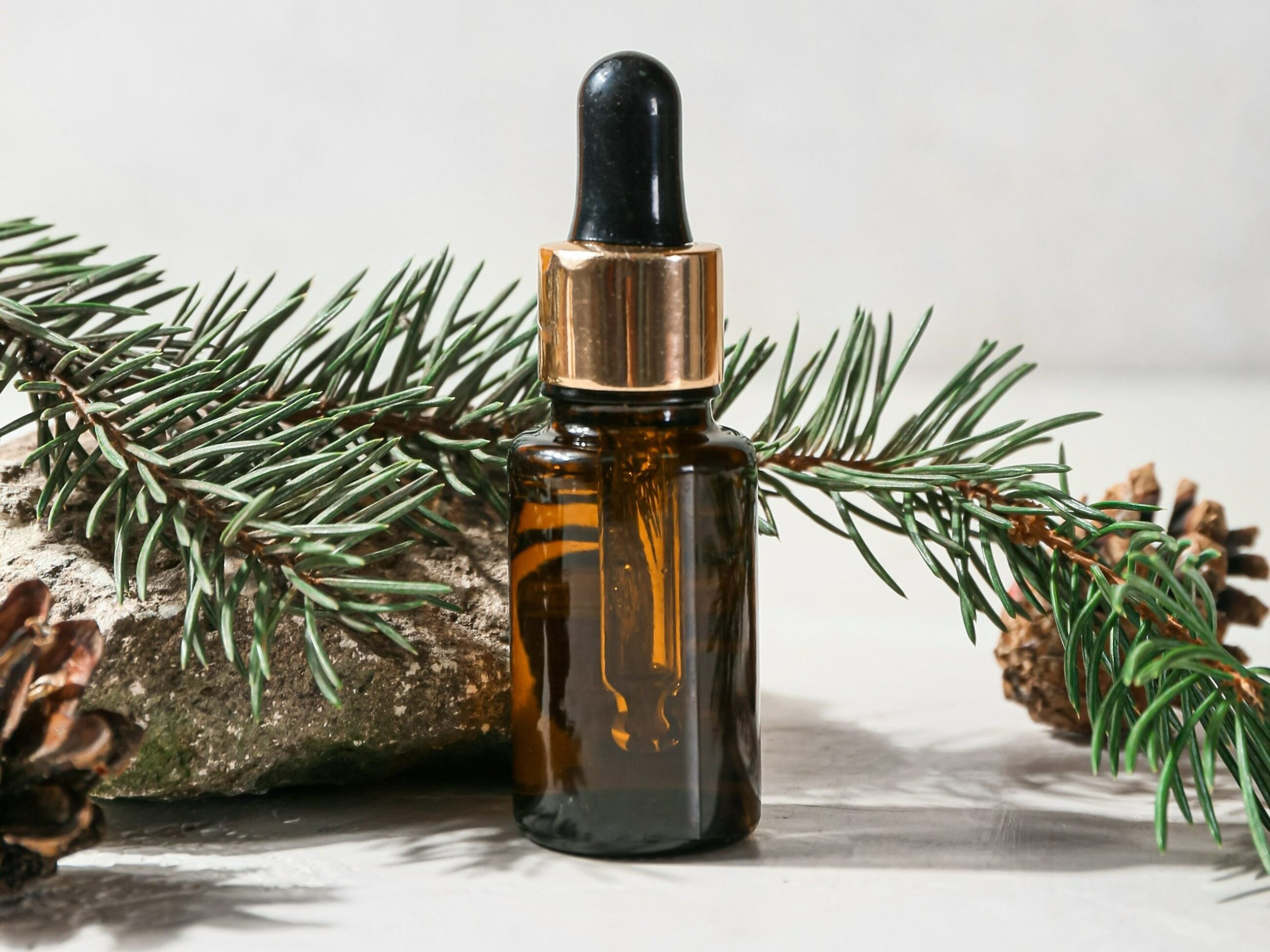Oil for colds, muscle pain or nervous tension. Learn about the properties and uses of picht oil

Natural fir oil (fir oil, Oleum Pini sibiricum) is an essential oil obtained from Siberian white-bark fir and silver fir. Traditionally it is used, among others: in natural medicine by the inhabitants of wild Siberia. We advise you when and for what you should use picht oil. See what precautions to take when using natural essential oils.
Picht oil has a rich composition and has numerous health-promoting properties, including: volatile phytoncides, terpenes, cadinene, cumulene, bornyl acetate and alpha-pinene. Traditionally, it is used not only in natural medicine, but also for cosmetic purposes on the skin and hair. It is worth remembering that each natural essential oil contains highly concentrated biologically active substances, which means that it should not be used in excess. Use caution and do not exceed the recommended dosage of picht oil for both oral and external use.
Only essential oil that has been dermatologically tested is suitable for use for medicinal and cosmetic purposes. High-quality natural essential oils are sold in dark glass bottles. You can buy them, among others: in pharmacies and herbal stores.
What properties does picht oil (fir oil) have?
Natural picht oil is famous for its many health properties. It is obtained from young shoots and needles of Siberian fir (Albies sibirica) growing in a clean environment, as well as silver fir. It is worth knowing that essential oil is not the same as fragrance oil. Fragrance oils contain artificial additives and should not be used on the skin, orally, or for aromatherapy.
Fir oil has been used for many centuries as a support in the treatment of various diseases and as a cosmetic agent that affects the condition of the skin and hair. Natural Siberian fir essential oil has anti-inflammatory, antibacterial, antifungal and antiviral properties as well as expectorant properties. Traditionally, pichta oil is used, among others, for upper respiratory tract infections. The antiseptic effect of pichta oil helps in the fight against pathogenic microorganisms, shortening the duration of the disease.
Moreover, fir oil has calming properties and improves mental health and mental performance, and also has a positive effect on the body’s immunity – when used during the infection season and during convalescence, it supports the body’s natural defenses.
It is worth knowing that fir oil deeply moisturizes and regenerates the skin and slows down the aging process. It is sometimes used to stimulate circulation and reduce pain and itching, as well as for inflammation and skin lesions, difficult-to-heal wounds and burns.
Pickle oil for flu and colds
Peppermint oil is most often used to support the treatment of infectious diseases of the upper respiratory tract. Inhalations with picht oil clear the nose and sinuses and facilitate breathing. Picht oil can also be used for rubbing and compresses, e.g. for muscle and joint pain that accompanies seasonal infections. Properly used, fir oil is a natural remedy for colds and coughs, but it must be remembered that not everyone should benefit from the unique power of essential oils. It is worth consulting a doctor before using picht oil. Essential oils should be used carefully, including: by people suffering from allergies and asthma because they may irritate the respiratory tract.
Picht oil can be used for traditional steam inhalations. It is not recommended to use essential oils for inhalation using a nebulizer. To improve air quality and benefit from aromatherapy, you can add chickpea oil to an air humidifier. It is recommended to use a few drops of picht oil for aromatherapy.
Picht oil for a tired mind, excessive nervous tension and anxiety
The fast pace of life and everyday problems mean that we often experience unpleasant, although sometimes unusual symptoms of stress. Fir oil can be used for tension headaches and other ailments related to excessive nervous tension. Its pleasant scent soothes the nerves, helps you relax, improves concentration and has a calming effect.
Picht oil for muscle and joint pain
Picht oil can be used to relieve muscle and joint pain. Diluted in base oil (e.g. olive oil) and rubbed into sore areas, it pleasantly warms up, relaxes tense muscles, improves blood circulation and reduces inflammation. Fir oil can also be used for warm therapeutic baths – just add 4-5 drops of fir oil to a bath of warm water to enjoy a bath that relaxes your muscles and soothes your senses. Bathing with picht oil also helps to get rid of swelling and improves blood circulation.
Peppermint oil for menopause symptoms
Pichta oil relieves the symptoms of menopause, reducing, among others: excessive nervous tension and preventing mood swings. Some sources say that you can use pichta oil for menopause orally, but you should not consume essential oils without first consulting your doctor.
Fir oil for skin and hair
Pichta oil can be used in skin and hair care. This is because fir oil intensively moisturizes and regenerates the skin and reduces pimples and blackheads. The high content of natural antioxidants helps maintain the skin’s youthful appearance and good condition, preventing, among other things, her flabbiness. Applying pichta oil to the hair and scalp helps, among others: get rid of dandruff, regulate sebum secretion and prevent excessive hair loss.
Foot oil for foot care
The antifungal and antibacterial effect of picht oil helps to take care of the health of the skin of the feet. Soaking your feet in water with fir oil is recommended, among others: as support for the treatment of skin and nail fungus.
Other uses of Siberian fir oil are also mentioned in the literature. This includes: for the treatment of psoriasis, eczema, rheumatic diseases, erectile dysfunction, prostate hypertrophy, acne and food poisoning.
Picht oil – precautions
Before using an essential oil, read the leaflet included in the package. The essential oil should be stored at room temperature, away from heat sources and out of the reach of children. Direct contact of essential oils with eyes and mucous membranes should be avoided.
Essential oils should not be used on infants and young children. Fir oil is also not recommended for pregnant and breastfeeding women, as well as for allergy and asthma sufferers.
Sources:
-
Kędzia A. et al., Activity of Oleum Pichtae oil against anaerobic bacteria. Postępy Fitoterapia,20(1), pp. 30-34, 2019
-
Ożarowski Aleksander, Rumińska Antonina, Lexicon of medicinal plants, National Agricultural and Forest Publishing House, Warsaw, 1990
-
Lutomski Jerzy, Alkiewicz Jerzy, Plant medicines in prevention and therapy, Wydawnictwo Lekarskie PZWL, Warsaw, 1993
-
Władysław Stanisław Brud, Iwona Konopacka-Brud, Fragrant pharmacy. Secrets of aromatherapy, Oficyna Wydawnicza MAK, 1992






